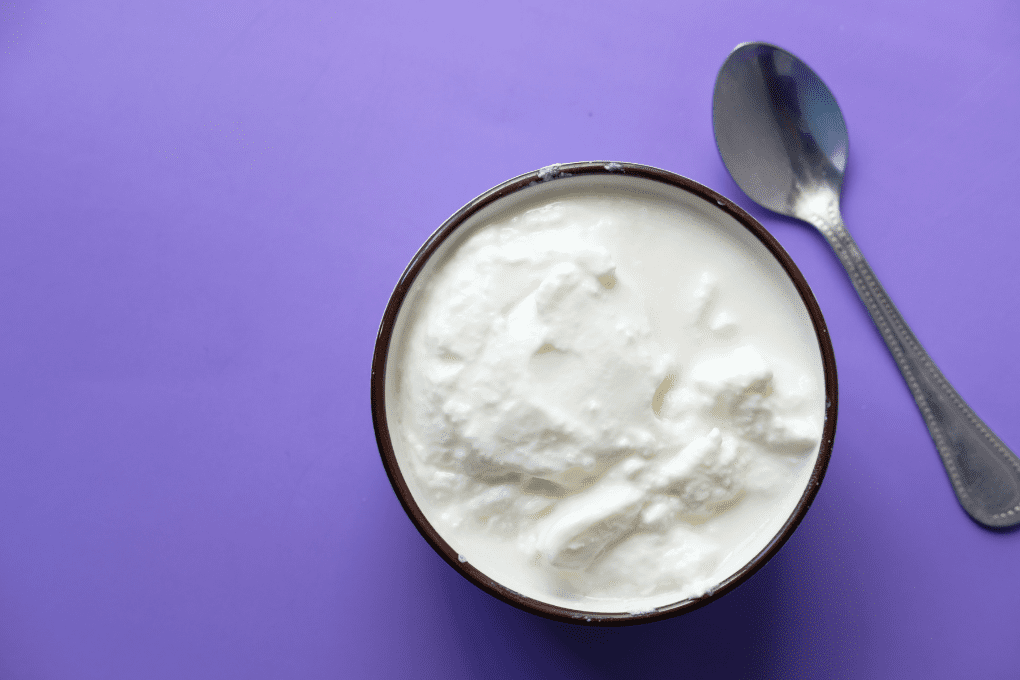
Savory or sweet, yogurt makes a nutritious addition to your meals and snacks. The dairy aisle at your local grocery store has likely exploded with yogurt options in the past few years, so here are some tips to help you pick the best option for your lifestyle.
Dairy vs. Plant-Based
Dairy-based yogurt is made from cow’s milk and comes in many different forms, from Greek to Icelandic, and drinkable to frozen. Yogurt contains varying amounts of fat, from fat-free to triple cream varieties. Plant-based yogurts can be made from a variety of ingredients including (but not limited to) oats, almonds, coconuts, soybeans, and cashews. Dairy-based yogurt contains an average of 8g high-quality protein per cup, whereas of 249 non-dairy yogurt alternatives, only 32.5% contained more than 5g of protein per cup.1 Greek yogurt contains even more protein, often up to 16g, per serving. Yogurt contains 40% of the daily value (DV) of vitamin B12, whereas only 21.7% of the plant-based yogurts contained at least 10% of the DV of B12.1 Choosing cow’s milk yogurt can help you meet your nutritional needs, while also supporting local and sustainable farming.
Flavored vs. Plain
Yogurt is available in an array of flavors, from the more traditional strawberry or vanilla to the more adventurous coffee or key lime pie. While plain yogurt is the most adaptable, flavored yogurt can be a fun way to try something new. Keep in mind that most flavored yogurts contain added sugar to make them sweet. The CDC recommends those aged 2 and over to limit added sugar in their diets to 10% of total calories, which for the average adult could be about 200 calories or 50g of sugar. Of the plant-based yogurt alternatives sampled, 53% contained 10g or more of added sugar per serving. If you’re looking to reduce the amount of added sugar in your diet, look for plain yogurt and to add flavor use fruit, a drizzle of honey, or a small spoonful of jam.
Additional Health Benefits of Yogurt
Yogurt contains live and active cultures that help to digest lactose, making it a good choice for people with lactose intolerance. Check the label of your favorite yogurt to ensure it contains live and active cultures to obtain the benefits of fermented dairy and probiotics.
For more ways to include yogurt in your day, try these delicious recipes:
Sources:
1. Craig WJ, Brothers CJ. Nutritional Content and Health Profile of Non-Dairy Plant-Based Yogurt Alternatives. Nutrients. 2021;13(11):4069. doi:10.3390/nu13114069



